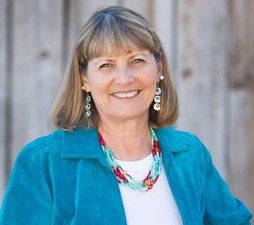I want to pass this message on…..for those who don’t understand how disastrous increased and/or re-instated estate taxes will be on agriculturalists — multi-generational farmers and ranchers who hope to pass their farmland on to their children. If farmers lose this battle, just to farm will cost each generation such a prohibitive amount, many will NEVER get out from under the burden…so why do it at all? Many American farmers and ranchers who had to suffer this in the past simply sold out and gave up their family farms.
Used with permission (see final note):
Commentary: D-Day approaches on estate tax reform
Issue Date: July 21, 2010
By Paul Wenger
Ag Alert Update, July 28: Estate tax bill introduced in Senate
Read related story
Estate tax reform sees movement with Senate bill
In 2001, Congress passed a number of tax reform laws designed to stimulate the economy as businesses and individuals reinvested their tax savings. These laws had a 10-year sunset and 2011 is when most of the “President Bush Tax Package” will cease to exist. None of the reforms passed in 2001 and set to expire are more important than the estate tax.
Paul Wenger
Over the last 10 years, the value of assets a person could pass on to their heirs gradually increased, until this year, when there were zero federal taxes due on any estate. The problem is, without congressional action, beginning Jan. 1, 2011, the estate tax will come roaring back, reverting to 2000 levels: a 55 percent tax on all assets above a $1 million per person/spouse exemption level. Although the exemption level in 2009 went from $3.5 million per person and a 45 percent tax rate thereafter, to no estate tax in 2010, other features, like stepped-up basis on property values at the time the property is inherited, are gone.
Preserving stepped-up basis is important to farm and ranch families because an heir’s new tax basis is the value of the farm at the time it is inherited. When someone inherits a farm under the “carryover basis” that took effect in 2010, the heir faces additional capital gains taxes. Without congressional action, stepped-up basis is gone in 2011, as well as the $1 million personal gift tax provision that allows a person to give that amount of money to someone, tax-free.
While the numbers I write about are large by anyone’s standard, the estate tax disproportionately affects farmers and ranchers. And while the super-wealthy are looking to pass cash, stocks and other liquid assets to their heirs, farmers and ranchers look to pass on non-liquid assets centered around land, buildings and livestock. Many who inherit agricultural property end up selling part or all of those assets to settle their tax burden. This results in multi-generational farmers being forced to make life-changing decisions regarding their future pursuits. It is likewise a major reason farm and ranch lands are converted to urban and non-agricultural development.
The politics of dissension in Washington, D.C., has created a quagmire for families faced with settling estates this year and planning for the future. Rumors that Congress will pass estate tax legislation that will be retroactive to Jan. 1, 2010, have many families not knowing which way to turn. The lack of resolve by Congress to solve this already very emotional issue is unconscionable.
Many proposals abound, the latest by Sens. Blanche Lincoln, D-Ark., and John Kyl, R-Ariz., who have proposed a bill that over a 10-year period would allow for a $5 million exemption per person/spouse with a 35 percent tax rate on the balance. While this is better than what will result in 2011 with no action by Congress, it falls well short of what is needed to allow California farmers and ranchers to pass their land and operations on to their children. The average land values in California are not seen in most other states, so the estate tax becomes a much more serious challenge to the survival of our family farms and ranches.
Recognizing our uniqueness, Rep. Mike Thompson, D-Napa, has been a tireless advocate since his first year in Congress, writing reforms into the estate tax laws that provide for the least costly transfer of farm assets between generations. Recently, Sen. Dianne Feinstein, D-Calif., has joined Rep. Thompson in designing legislation that will allow the transfer of a farm or ranch between family members without tax obligation, until such time as the farm is sold outside the family or to a use other than agriculture. Rather than a forgiveness of taxes, this is a deferral of taxes until there is an actual sale. This is only fair and right.
The longer it takes Congress to address the estate tax issue, the more unpredictable it becomes. Recently, a report by the Center on Budget and Policy Priorities entitled “Unlimited Estate Tax Exemption for Farm Estates is Unnecessary and Likely Harmful” made the ridiculous claim that farmers are not affected by the estate tax, and that there are “no known incidents where a farm has been sold in part or whole to settle estate tax obligations.” I researched the CBPP and found it to be a liberal advocacy organization, more focused on wealth reallocation than protecting hard-working farm and ranch families. Yet its ludicrous assertions create doubt.
It is time to fight back. I want to take a few farmers and ranchers with me to Washington to provide a real face—a real story, a real example—to show the real pervasiveness of the estate tax. I have asked Sen. Feinstein’s office for the opportunity to meet the authors of the CBPP report and I will bring our members who can refute, firsthand, the erroneous assertions their report makes.
I know issues like the estate tax are personal and farmers and ranchers are a private lot, but WE CAN MAKE A DIFFERENCE. Your story—directly told to congressional members—could set the stage for real reform that will allow for the orderly transition of a farm or ranch from one generation to the next without forcing life-altering decisions when a family member dies.
It’s D-Day, folks. I can think of no group of individuals better suited to fight this important battle than California farmers and ranchers.
Call or write me now with your personal stories. Let’s go get ’em!
Permission for use is granted, however, credit must be made to the California Farm Bureau Federation when reprinting this item. Top
California Farm Bureau Federation, 2300 River Plaza Drive, Sacramento, CA 95833
Phone: (916) 561-5500, Fax: (916) 561-5695, General Information: cfbf@cfbf.com
© California Farm Bureau Federation. All rights reserved. Read our legal notice.



